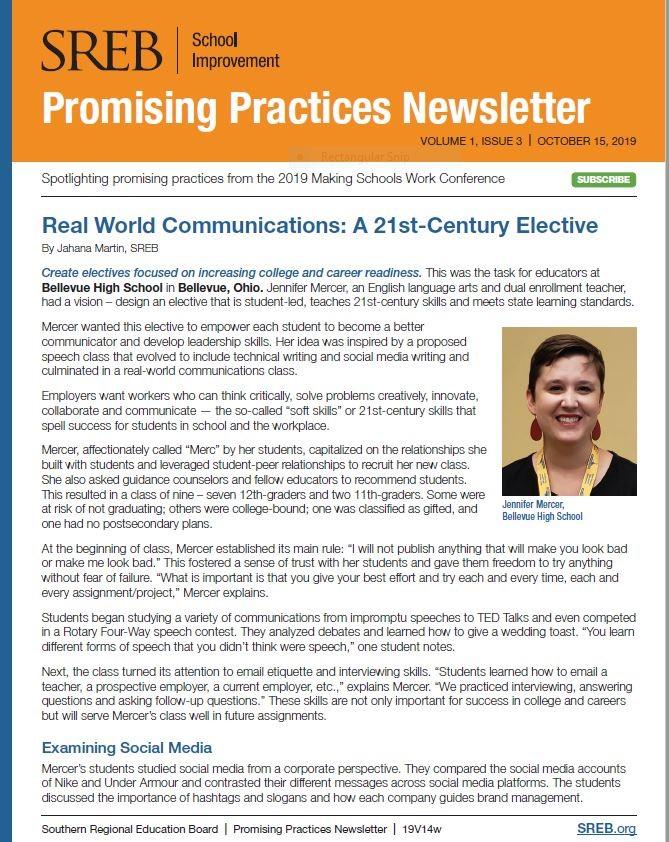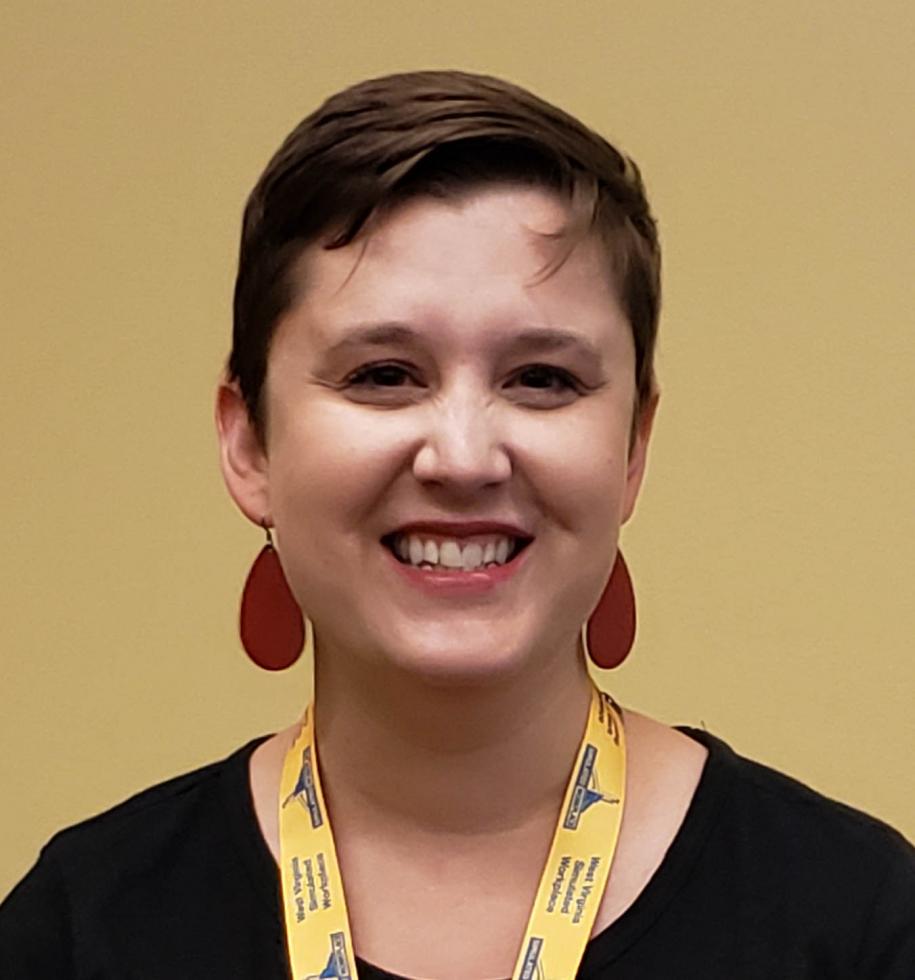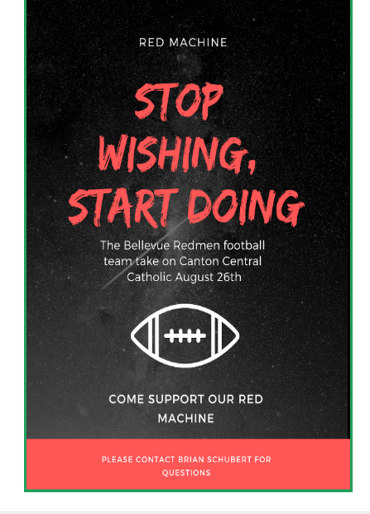Real World Communications: A 21st-Century Elective
Promising Practices From the 2019 Making Schools Work Conference
 Create electives focused
on increasing college and career readiness. This
was the task for educators at Bellevue High
School in Bellevue, Ohio. Jennifer
Mercer, an English language arts and dual enrollment teacher, had
a vision – design an elective that is student-led, teaches
21st-century skills and meets state learning standards.
Create electives focused
on increasing college and career readiness. This
was the task for educators at Bellevue High
School in Bellevue, Ohio. Jennifer
Mercer, an English language arts and dual enrollment teacher, had
a vision – design an elective that is student-led, teaches
21st-century skills and meets state learning standards.
Mercer wanted this elective to empower each student to become a better communicator and develop leadership skills. Her idea was inspired by a proposed speech class that evolved to include technical writing and social media writing and culminated in a real-world communications class.
Employers want workers who can think critically, solve problems creatively, innovate, collaborate and communicate — the so-called “soft skills” or 21st-century skills that spell success for students in school and the workplace.
 Mercer, affectionately called
“Merc” by her students, capitalized on the relationships
she built with students and leveraged student-peer
relationships to recruit her new class. She also asked
guidance counselors and fellow educators to recommend students.
This resulted in a class of nine – seven 12th-graders and two
11th-graders. Some were at risk of not graduating; others were
college-bound; one was classified as gifted, and one had no
postsecondary plans.
Mercer, affectionately called
“Merc” by her students, capitalized on the relationships
she built with students and leveraged student-peer
relationships to recruit her new class. She also asked
guidance counselors and fellow educators to recommend students.
This resulted in a class of nine – seven 12th-graders and two
11th-graders. Some were at risk of not graduating; others were
college-bound; one was classified as gifted, and one had no
postsecondary plans.
At the beginning of class, Mercer established its main rule: “I will not publish anything that will make you look bad or make me look bad.” This fostered a sense of trust with her students and gave them freedom to try anything without fear of failure. “What is important is that you give your best effort and try each and every time, each and every assignment/project,” Mercer explains.
Students began studying a variety of communications from impromptu speeches to TED Talks and even competed in a Rotary Four-Way speech contest. They analyzed debates and learned how to give a wedding toast. “You learn different forms of speech that you didn’t think were speech,” one student notes.
Next, the class turned its attention to email etiquette and interviewing skills. “Students learned how to email a teacher, a prospective employer, a current employer, etc.,” explains Mercer. “We practiced interviewing, answering questions and asking follow-up questions.” These skills are not only important for success in college and careers but will serve Mercer’s class well in future assignments.
Examining Social Media
Mercer’s students studied social media from a corporate perspective. They compared the social media accounts of Nike and Under Armour and contrasted their different messages across social media platforms. The students discussed the importance of hashtags and slogans and how each company guides brand management.
Students also examined the analytics from their school’s Twitter and Facebook accounts. They studied how the school is branded, what types of information are posted and how that information affects engagement. “I wanted to force them to think critically and collaborate,” Mercer says.
 As a marketing exercise,
students created a theme- or marketing-based graphic
presentation. They used Canva, a simplified graphic design tool
website, to create designs including a poster/flyer/announcement,
a social media post/design, a book or CD cover, desktop wallpaper
or a postcard.
As a marketing exercise,
students created a theme- or marketing-based graphic
presentation. They used Canva, a simplified graphic design tool
website, to create designs including a poster/flyer/announcement,
a social media post/design, a book or CD cover, desktop wallpaper
or a postcard.
Students also considered how social media helps to frame their personal brand and image by examining their own usage and content.
Recreating the BHS Blog
Mercer’s students were excited when asked to take the reins at the school’s blog. They assessed the brand created by the superintendent, principal and athletic director and researched and analyzed other blogs.
For the new blog, instead of focusing on staff and athletic events, the class focused on fellow students with unique talents who were often overlooked. The most popular blog posts featured students and student clubs and activities such as bell choir and prom. The blog viewership grew exponentially from less than 100 views per month to between 350 to 650 per month depending on the topic of the post.
As one student notes, “Students get to experience things such as blogs and podcasts that they get to publish. [It] definitely teaches you real world communications. It was very fun and beneficial.” Mercer’s class also produced a graduation video using Adobe Spark.
Looking Forward
Mercer noticed increased community interest as the blog posts were shared on local Facebook groups. This year she is inviting individuals who run blogs and social media accounts for their businesses to meet with students and give them tips.
Mercer will also incorporate student feedback into next year’s elective. Students expressed they want to participate in more debates and fewer TED Talks. They also want to try poetry, a project focused on career options and job selection, a campaign-based project, a vlog and a eulogy.
A student concludes, “This is a great class to build your confidence and work on different types of skills. It’s not all serious; you have fun but you still learn in a fun and different way.”
Contact(s): Jennifer Mercer, jennifer.mercer@bellevueschools.org or @jennymercer28 on Twitter.

